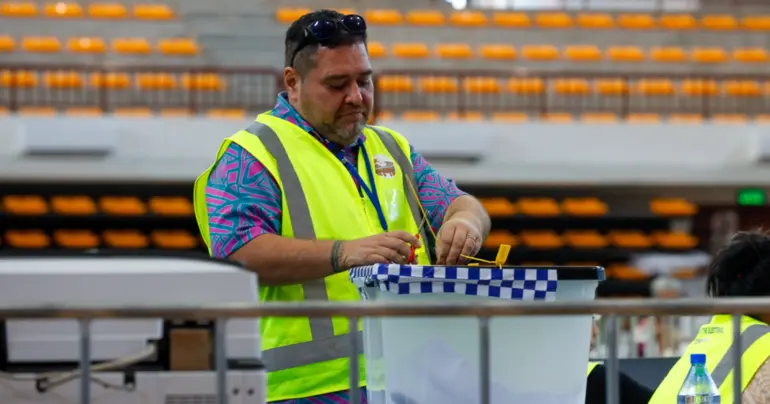Recognising and rewarding hard work throughout the elections
Hard work needs to be recognised and, above all, it needs to be duly rewarded. It is assuring that the Office Electoral Commission is adhering to principles of good governance by making sure all the hours worked by the OEC staff are paid.
Electoral Commissioner Tuiafelolo John Stanley confirmed that staff will be paid for the overtime hours they are working during the official ballot count. The commissioner said OEC workers put in long hours this week to complete the constituency counts within the required timeframe. Workers are allowed 15-minute breaks between counts until each constituency is finished, he said. On Tuesday night, when the official count for that session ended around 3 am, workers were sent home to rest before resuming again at 9 am on Wednesday.
The official counts started on Monday, but the work had been ongoing even before that. The long hours were endured in setting up the elections and ensuring a smooth operation at all polling booths. According to the OEC, the hard work put in by the staff was only marred by the negligence, oversights and perhaps sabotage of those hired or seconded from other ministries. Investigations into the various discrepancies will follow.
The OEC staff have had to pick up the slack for the mistakes that have been made. It was seen when the official counts began. The staff had to recount all the votes and then address the wrong tallies and the missing votes or the invalid (informal) votes that came in, and add the special and pre-polling votes to give an accurate count. The staff have also ensured that they have been able to deliver the official count on schedule. The accuracy of the count is vital in any election.
They have sacrificed their time with their families, strained their health and have taken abuse from online commentators, but they have delivered what was expected of them. As the counting ended on Thursday, Tuiafelolo and his dedicated team should not feel that they have done a mediocre job. They have delivered an election which, so far, has been transparent and fair. The OEC has been under immense pressure, starting from registration until now. Hopefully, the labour laws have been followed during the period when the long hours were necessary.
The budgetary allocation given to OEC seems to have been well managed and planned. Tuiafelolo’s assurance of overtime being paid is a reflection of this. The OEC, like other government ministries, is faced with the same problem. It is common knowledge now that all government ministries are quickly depleting their allocation provided to them after the budget failed. 25 per cent of the 2024/2025 budget does not rightfully cover the cost of operations, in which the most important part is the salaries of civil servants.
There are some ministries and government agencies that rely on the budget, which may not make it to the end of the month. A precarious situation for the nation and one that spells economic slowdown, something not needed. The public sector drives most of the private sector, and the need for a new budget that truly reflects the rightful allocations is urgent.
Let us look forward to the next mandatory legal steps that are required to be followed by the OEC as the counting has now ended.











